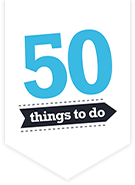Data Science
50 Things has a strong research pedigree which continues to underpin its development. Our partnership with The Centre for Applied Educational Research (CAER) presents an ongoing opportunity for us to learn more about 50 Things’ impact on early learning, child development and health.
The data-sharing protocols CAER have developed within Bradford are enabling their world-leading data analytical specialists to provide compelling evidence about ‘what works’ in the Early Years and for children of primary school age. Their researchers use these datasets and the data 50 Things creates to find increasingly effective ways to improve 50 Things, so that we can impact even more positively on the lives of young children growing up in poverty. From their test-base in Bradford, CAER is now able to extend the reach of its work nationwide; also supporting new 50 Things projects for other ages and sectors.
The CAER is backed by major national funders including the EEF, NHS and the DfE.
Understanding the Partnership Research Opportunity
The Birth of 50 Things: 50 Things was based on the teaching and learning approaches of our school, St Edmund’s Nursery School, Bradford. St Edmund’s has been school judged as outstanding by Ofsted for over ten years; and commands a national profile for exceptional Early Years practice. Supported by seed funding from Big Change, and subsequently by the DfE and Shine Foundation, 50 Things has grown rapidly and is now a key element of 9 Local Authorities’ Early Years improvement strategy.
The Birth of CAER: The Centre for Applied Educational Research (CAER) have been supported by grants from the Bradford Opportunity Area, the Universities of Bradford and Leeds, The Wolfson Foundation, and the NHS. Working as research partners for us and also Better Start Bradford, CAER supports the world-leading research database which underpins the Born in Bradford cohort study. Professor Mark Mon-Williams, CAER Director, writes below about the exceptional opportunity provided by this partnership to demonstrate the robust and convincing evidence of impact within 50 Things.
The Digital Opportunity: Bradford has incredibly rich data resources and access to outstanding digital infrastructure. There are world-leading examples of routine data linkage within the region (e.g. the Born in Bradford project), providing a powerful resource for local and central government as they explore how their services can be better delivered. This digital capacity supports organisations looking to exploit the opportunities for societal benefit associated with the digital revolution. Moreover, CAER: Bradford offers internationally leading expertise in the ‘digital triangle’.
The Digital Triangle: The three ‘apexes’ of the digital triangle comprise: data analytics, artificial intelligence and immersive technologies. Each reflects a transformative technology in its own right, but the most revolutionary applications of data science for improving children’s lives will ultimately involve a combination of these technologies. Thus, the triangle provides a powerful framework for analyzing the challenges and opportunities that are being created via this digital revolution.
The Centre for Applied Educational Research
CAER acts as a hub that brings incredible datasets together with world class experts in data science. CAER connects to the Leeds Institute for Data Analytics (the UK’s largest such Institute) and the Alan Turing Institute. The Region has world class expertise in Artificial Intelligence and Immersive Technologies (as acknowledged in a recent report published by the Digital Catapult). Thus, CAER is in prime position to address the challenges and exploit the opportunities of the digital future.
A CAER vision of the Future: We have recently created the infrastructure needed to coordinate the myriad of exciting projects happening across Bradford. The Centre is supported by the Department for Education (as part of its work within the Opportunity Area), and is a partnership between the Bradford NHS Teaching Hospital Trust, the Universities of Leeds and Bradford – providing academic firepower.
One major goal of the Centre is to empower children in Bradford to become Citizen Scientists, and to provide them with the tools they need to live healthy, happy and prosperous lives. This goal is well aligned with the newly created Commission for Children’s Digital Futures (founded by Baroness Kidron), which has adopted Bradford as a trailblazing site for exploring innovative approaches to improving the Digital Futures of our children.
"Bradford is playing a fundamental role in ensuring that children within Bradford profit from the emerging technological revolution (in data analytics, artificial intelligence and immersive technologies) – benefiting from digital innovation (e.g. the 50 Things app), acquiring core digital skills (equipping them for the jobs of the future), and receiving an educational ‘vaccination’ that will help them protect their rights in a fast changing digital world."
The Centre for Applied Educational Research (CAER)
Three Partnership Priorities
- To provide compelling quantitative and qualitative evidence that 50 Things has impact, across a range of educational, and health outcomes
- To co-create 50 Things-style approaches for parents of older children who attend special schools; and for young people who are within the care system
- To provide evidence that our other planned digital apps:
a. are an effective way of improving parental confidence in their ability to extent and enrich experiences for their child with special needs
b. develop the experience, knowledge and confidence of young people within and leaving the care system, so that they more able to become happy and successful members of society
Written by:
Professor Mark Mon-Williams
Chair in Cognitive Psychology, The University of Leeds
CASE STUDIES
